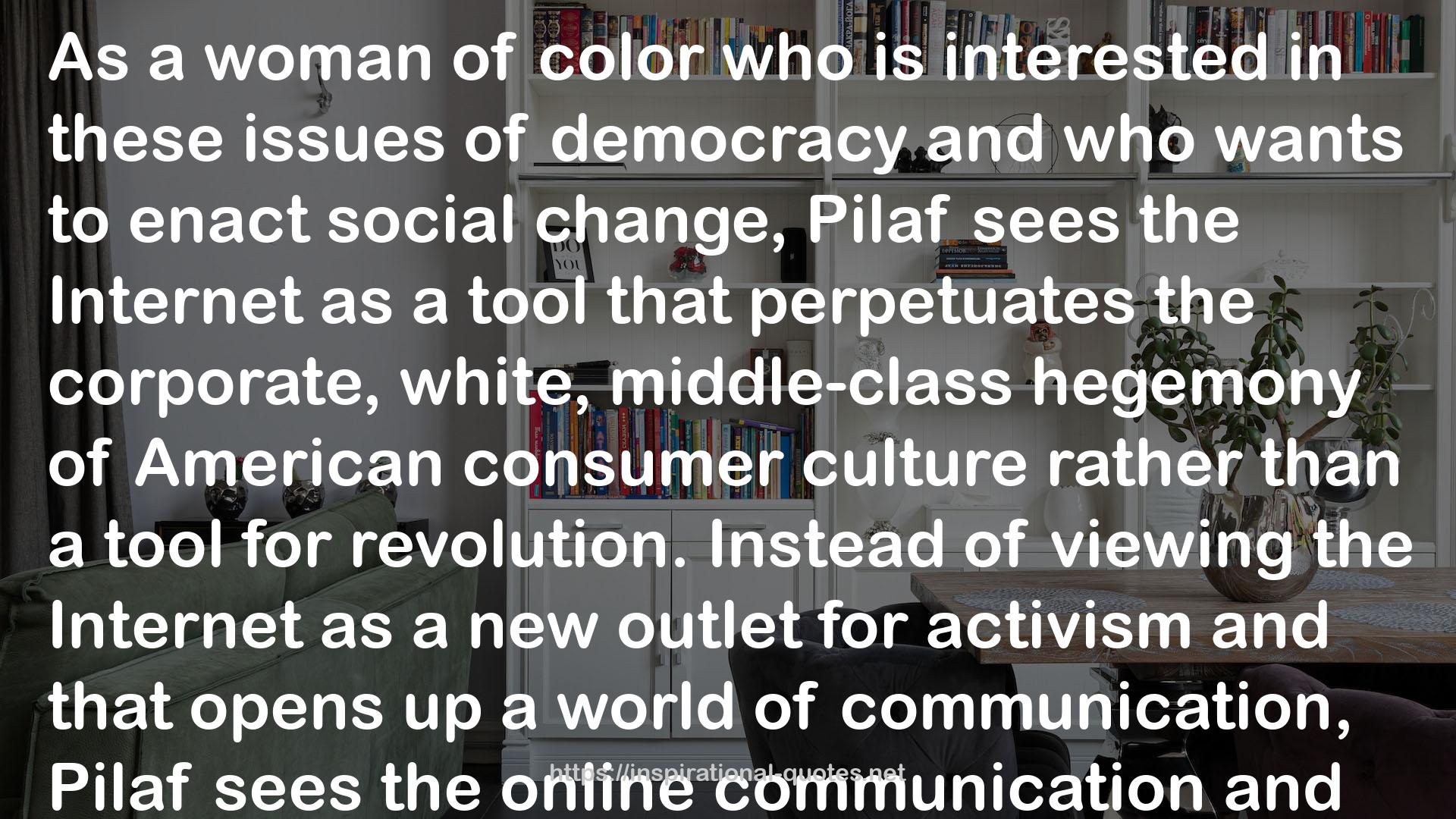" As a woman of color who is interested in these issues of democracy and who wants to enact social change, Pilaf sees the Internet as a tool that perpetuates the corporate, white, middle-class hegemony of American consumer culture rather than a tool for revolution. Instead of viewing the Internet as a new outlet for activism and that opens up a world of communication, Pilaf sees the online communication and activism as an escape valve, a way to remove oneself from interactions with people. Although I disagree with her on this point, I’m very much aware that my ability to see the Internet as revolutionary comes from a place of privilege, in which I can think of the Internet as a sexual, political, and intellectual arena because I’m in a place (geographically and economically) where these are the very things that are my primary focus and concern. Although some of Pilaf’s criticisms overlap with those technophobes who view the Internet as the devil’s playground, her observations come from a very real, intense place of political and personal discomfort with forging ahead of digital culture and the casualties this ‘progress’ may leave. "
― Audacia Ray , Naked on the Internet: Hookups, Downloads, and Cashing in on Internet Sexploration
